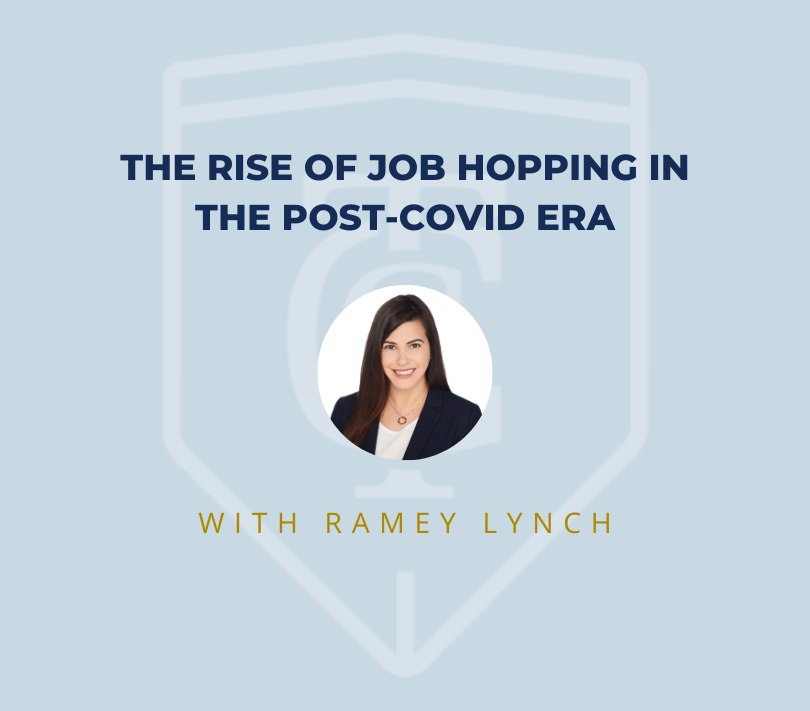
The COVID-19 pandemic has fundamentally reshaped the workplace and the way we view careers. One of the most significant trends that has emerged in its aftermath is the rise of job hopping—where employees frequently change jobs, often within a short span of time. This phenomenon is not just a fleeting trend; it reflects a deeper shift in how individuals approach their careers and what they prioritize in their professional lives. In 2022 Forbes found that 22% of people age 20 and over spent one year or less at their jobs that year.
According to a 2023 report from LinkedIn, half of workers were considering leaving their jobs in 2023. Gen Z and millennials are the most prone to job hopping. These generations tend to value work-life balance and more freedoms than previous generations.
1. Changing Priorities: The pandemic forced many people to re-evaluate their work-life balance and career aspirations. For some, the traditional notion of job security became less appealing when faced with layoffs and economic uncertainty. As a result, employees began to prioritize flexibility, job satisfaction, and personal fulfillment over long-term stability. Many discovered that they were not just looking for a paycheck but for meaningful work that aligns with their values.
2. The Remote Work Revolution: Remote work became the norm during the pandemic, and it has opened up new possibilities for job seekers. With the rise of virtual workplaces, geographical boundaries have blurred. Employees are no longer limited to local job markets; they can pursue opportunities across the country or even internationally. This increased competition and access to diverse roles have contributed to the trend of job hopping, as individuals explore different companies and cultures.
3. The Importance of Skill Development: Job hopping can also be seen as a strategic move for skill development. In a rapidly changing job market, employees are increasingly aware of the need to adapt and acquire new skills. By moving from one position to another, individuals can gain a wider array of experiences and expertise. This trend is particularly prevalent among younger generations, who view diverse experiences as valuable assets in their career portfolios.
4. Employer Response: Adapting to the New Norm: As job hopping becomes more common, employers are beginning to adjust their strategies to attract and retain talent. Many organizations are now focusing on creating positive workplace cultures, offering competitive benefits, and providing opportunities for professional growth. Companies that understand the motivations behind job hopping are more likely to implement policies that promote employee engagement and satisfaction.
5. Navigating the Job Hopper’s Journey: For those considering job hopping, it’s essential to approach this career strategy thoughtfully. Here are some tips for navigating this trend effectively:
– Reflect on Your Goals: Before making a move, take time to assess your career objectives and what you want from your next role.
– Build a Strong Network: Networking is crucial in today’s job market. Cultivate relationships within your industry to discover new opportunities.
– Be Transparent: When interviewing, be honest about your job history. Explain your reasons for changing roles and how those experiences have enriched your skill set.
– Stay Open to Learning: Embrace each new role as a chance to learn and grow, making the most of every opportunity.
6. The Future of Work: As we look ahead, job hopping is likely to remain a prominent feature of the employment landscape. The pandemic has shifted our expectations and desires, and it’s clear that flexibility, growth, and fulfillment will continue to be top priorities for many workers.
While job hopping may have once been viewed negatively, it now represents a proactive approach to career development. By embracing this trend, both employees and employers can foster a more dynamic and adaptable workforce ready to face the challenges of the future. In my experience as a recruiter, I find that as clients continue to understand and embrace job hopping, they are able to improve their own company culture and see candidates with extended skillsets and entrepreneurial mindsets.
About Ramey Lynch, Business Development & Recruiting Manager
 Ramey Lynch is a dynamic Business Development & Recruiting Manager at The Christopher Group, leveraging her extensive experience in executive recruiting and business development. Deeply connected to TCG’s core values, Ramey is passionate about forming meaningful connections with individuals through executive search and being a significant part of their professional and personal journeys. To learn more about Ramey, visit her bio page.
Ramey Lynch is a dynamic Business Development & Recruiting Manager at The Christopher Group, leveraging her extensive experience in executive recruiting and business development. Deeply connected to TCG’s core values, Ramey is passionate about forming meaningful connections with individuals through executive search and being a significant part of their professional and personal journeys. To learn more about Ramey, visit her bio page.

Just read an article about this with job hoppers celebrating their many moves… often not their decisions as some were terminations. Hopefully companies understand a couple of things. First, you should have always cared about your culture, not just reacting now as people will see the lack of authenticity. Second, while I get some reasons for hopping, it still makes the candidate look bad. The advice above is spot on with be open and honest with it… ultimately, it may not help, but you’re also not going to fool many employers. And finally, it takes more than 6 to 18 months in many situations to learn a new company, role, industry, etc. And takes even longer to become proficient. It says a lot about a person who isn’t willing to put in the time and thinks they know it all already.
Thanks for the added input Scott, these are great points.